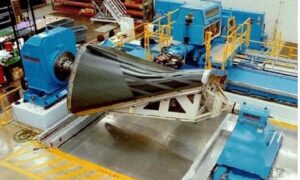Effective waste management is a cornerstone of modern society, crucial for maintaining public health, environmental quality, and sustainable urban living. Both residential and commercial sectors generate significant amounts of waste, each with distinct characteristics and management requirements. This comprehensive guide explores various facets of residential and commercial trash removal, emphasizing strategies and innovations for efficient waste management.
Understanding the Scope of Trash Removal
Trash removal encompasses the entire process of collecting, transporting, processing, and disposing of waste materials. It involves various stakeholders, including households, businesses, waste management companies, and government agencies. Effective trash removal ensures that waste is handled in a way that minimizes environmental impact and promotes public health.
Residential Trash Removal
Rockland County residential trash removal deals with household waste generated by daily activities. Key aspects of residential waste management include regular collection services, recycling initiatives, and proper disposal methods.
1. Scheduled Collection Services
Most communities provide scheduled trash collection services to ensure that household waste is regularly and efficiently removed. Typically, these services operate on a weekly or bi-weekly basis, allowing residents to dispose of their waste in a timely manner. Properly managing the volume and type of waste generated at home is essential for maintaining a clean living environment.
2. Recycling and Sorting
Recycling plays a crucial role in reducing the amount of waste sent to landfills. Households are encouraged to separate recyclable materials such as paper, plastics, glass, and metals from general waste. Curbside recycling programs often provide bins for specific types of recyclables, making it easier for residents to participate in recycling efforts.
3. Composting Organic Waste
Organic waste, including food scraps and yard waste, can be composted to create nutrient-rich soil amendments. Many communities support composting through municipal programs or provide guidance for home composting. Composting reduces the volume of waste that needs to be collected and processed, and it benefits the environment by returning valuable nutrients to the soil.
4. Handling Hazardous Household Waste
Household hazardous waste (HHW) includes items such as batteries, paints, chemicals, and electronics. These materials require special handling to prevent environmental contamination and health risks. Communities often organize HHW collection events or provide designated drop-off locations for safe disposal.
Commercial Trash Removal
Commercial trash removal addresses the waste generated by businesses, institutions, and industrial facilities. The volume and diversity of commercial waste necessitate tailored management solutions.
1. Tailored Waste Management Plans
Businesses generate a wide range of waste types, including paper, packaging materials, food waste, and hazardous substances. Waste management companies work with businesses to develop customized waste management plans that address their specific needs. These plans consider factors such as waste volume, composition, and regulatory requirements.
2. Regular Waste Collection and Disposal
Commercial establishments require regular and reliable waste collection services to maintain cleanliness and operational efficiency. Depending on the nature and size of the business, waste collection may be scheduled multiple times a week. Large containers such as dumpsters and compactors are often used to manage the higher volume of waste.
3. Recycling Programs for Businesses
Implementing recycling programs in commercial settings helps reduce the environmental footprint of businesses. Waste management companies assist businesses in setting up recycling systems for materials such as cardboard, plastics, glass, and metals. Businesses are also encouraged to explore opportunities for recycling specific waste streams unique to their operations.
4. Managing Industrial and Hazardous Waste
Certain industries generate hazardous and industrial waste that requires specialized handling and disposal. Waste management companies offer services for the safe collection, transportation, and disposal of hazardous materials, ensuring compliance with environmental regulations and protecting public health.
Effective Strategies for Waste Management
Adopting effective waste management strategies is essential for both residential and commercial sectors. These strategies not only enhance efficiency but also promote sustainability and resource conservation.
1. Waste Reduction at Source
Reducing waste generation at the source is a fundamental strategy for effective waste management. Both households and businesses can minimize waste by adopting practices such as buying in bulk, using reusable items, and avoiding single-use products. Source reduction reduces the burden on waste collection and disposal systems.
2. Efficient Waste Segregation
Proper segregation of waste into categories such as recyclables, organic waste, and general trash is crucial for efficient waste management. Clear guidelines and education on waste segregation can help residents and businesses sort their waste correctly, facilitating easier collection and processing.
3. Promoting Public Awareness and Education
Educating the public about the importance of waste management and how to participate effectively is vital for success. Communities can organize workshops, distribute informational materials, and launch awareness campaigns to engage residents and businesses in waste reduction and recycling efforts.
4. Leveraging Technology for Waste Management
Advancements in technology offer innovative solutions for improving waste management. Smart waste management systems, automated sorting technologies, and data analytics can enhance the efficiency and effectiveness of waste collection, processing, and recycling.
Innovative Solutions in Trash Removal
Innovation is transforming the waste management industry, offering new approaches to tackle waste challenges. Here are some cutting-edge solutions making a difference:
1. Smart Waste Collection Systems
Smart waste collection systems use sensors to monitor the fill levels of waste containers. This data is used to optimize collection routes and schedules, reducing fuel consumption and operational costs. By collecting waste only when containers are full, these systems enhance the efficiency of waste collection services.
2. Advanced Recycling Technologies
Advanced recycling technologies are improving the recovery and processing of recyclable materials. Automated sorting machines equipped with AI and robotics can accurately separate different types of recyclables from mixed waste streams, increasing the purity and value of recycled materials.
3. Waste-to-Energy Conversion
Waste-to-energy (WTE) technologies convert non-recyclable waste into energy through processes such as incineration and gasification. WTE facilities generate electricity and heat from waste, reducing the volume of waste sent to landfills and providing a renewable energy source.
4. Biodegradable and Compostable Products
The development of biodegradable and compostable products is reducing the environmental impact of waste. These products break down naturally in the environment or composting systems, decreasing the accumulation of plastic waste in landfills and oceans.
Conclusion
Effective waste management is essential for maintaining a clean and sustainable environment. By understanding the specific needs of residential and commercial trash removal, adopting best practices, and embracing innovative solutions, communities and businesses can contribute to a more efficient and responsible waste management system. As technology and awareness continue to evolve, the future of trash removal holds great promise for enhancing sustainability and protecting our planet for future generations.
Read More From Techbullion And Businesnewswire.com



































